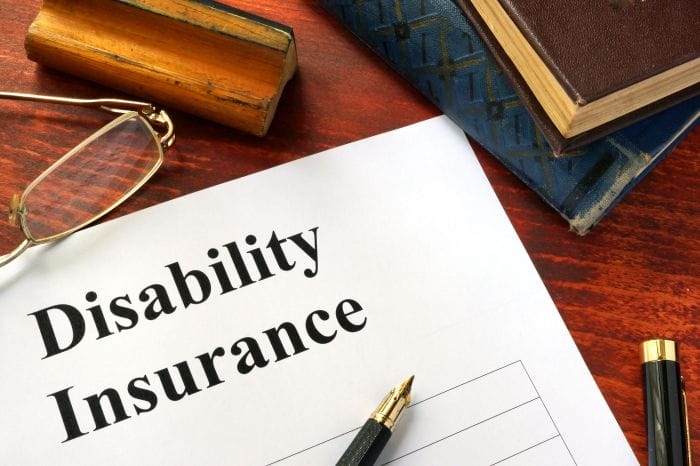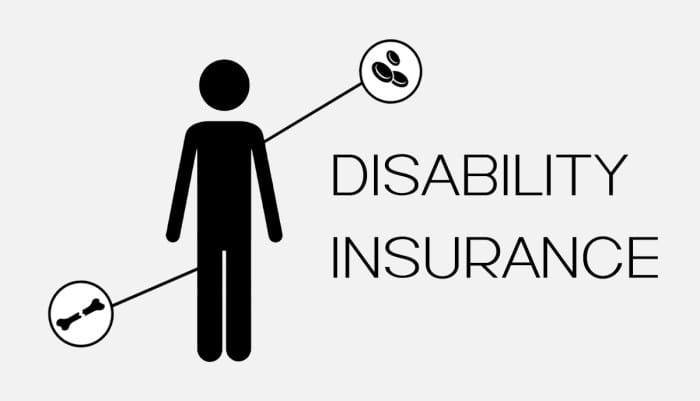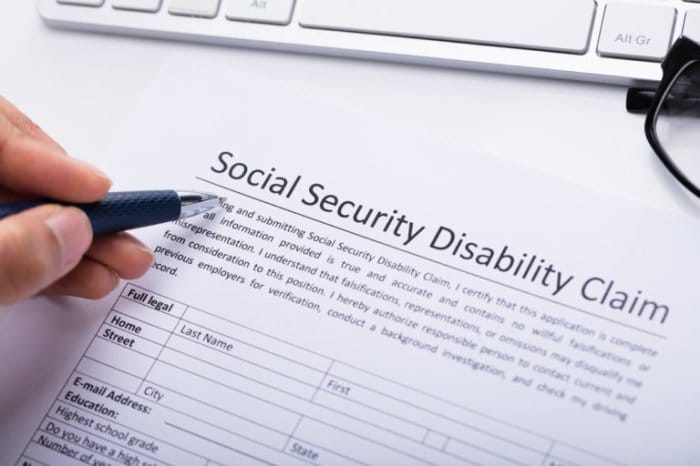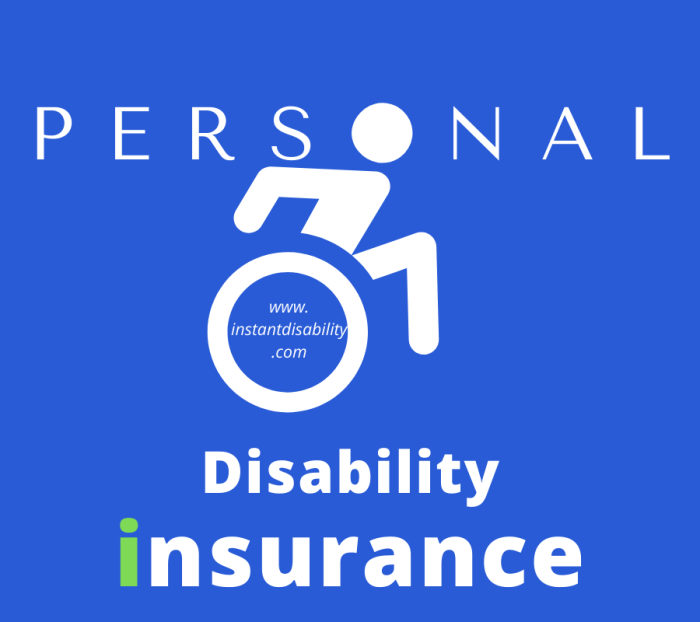Life’s uncertainties can bring unforeseen challenges, including the inability to work due to disability. Private disability insurance serves as a safety net, providing financial support during such trying times. However, the claims process is not always straightforward. If your claim has been denied, don’t lose hope.
This comprehensive guide offers invaluable tips and strategies to help you navigate the appeals process and secure the benefits you rightfully deserve.
Appealing a disability insurance claim requires careful preparation, strategic evidence gathering, and unwavering determination. We will delve into the intricacies of disability insurance policies, exploring key provisions and definitions that determine eligibility for benefits. We will also discuss the types of medical, financial, and vocational evidence that can bolster your case.
Additionally, we will provide insights into the appeals process, highlighting important deadlines and the role of insurance companies.
Private Disability Insurance

Private disability insurance provides a financial safety net in case you become disabled and unable to work. It replaces a portion of your income, helping you maintain your standard of living and cover expenses.
Disability insurance covers a wide range of disabilities, including accidents, illnesses, and mental health conditions that prevent you from performing your job duties.
Benefits of Private Disability Insurance
Private disability insurance offers several benefits, including:
- Income replacement: Disability insurance provides a monthly benefit that replaces a portion of your income, typically between 50% and 70%. This benefit can help you cover your living expenses, such as rent or mortgage payments, utilities, and groceries.
- Tax-free benefits: Disability insurance benefits are generally tax-free, which means you won’t have to pay taxes on the money you receive.
- Long-term coverage: Disability insurance can provide coverage for a long period of time, typically until you reach retirement age. This means you can have peace of mind knowing that you’ll be financially protected if you become disabled.
- Rehabilitation and vocational training: Some disability insurance policies include rehabilitation and vocational training benefits. These benefits can help you get back to work or find a new job if you’re unable to return to your previous job.
Tips for Appealing a Disability Insurance Claim

If your disability insurance claim has been denied, do not lose hope. You have the right to appeal the decision. Here are some strategies to help you appeal your claim successfully.
Gather evidence to support your appeal. This includes medical records, doctor’s notes, and any other documentation that supports your claim. The more evidence you have, the stronger your case will be.
Organize your evidence
Once you have gathered all of your evidence, organize it in a way that makes it easy for the insurance company to review. This will help them to understand your case and make a decision.
Write a strong appeal letter
In your appeal letter, explain why you believe the insurance company’s decision is wrong. Be sure to include all of the evidence that you have gathered to support your claim.
Consider hiring an attorney
If you are not comfortable appealing your claim on your own, you may want to consider hiring an attorney. An attorney can help you to gather evidence, write a strong appeal letter, and represent you at a hearing.
Understanding the Disability Insurance Policy

Understanding the terms and conditions of your disability insurance policy is crucial for a successful appeal. Knowing your rights and responsibilities as a policyholder can help you navigate the claims process effectively.
Key Provisions of a Disability Insurance Policy
- Definition of Disability: This section defines the conditions that must be met for you to be considered disabled under the policy.
- Benefit Amount: This section specifies the amount of money you will receive each month if you are found disabled.
- Benefit Period: This section specifies the length of time you will receive benefits, which can be a specific number of years or until you reach a certain age.
- Elimination Period: This is the waiting period before you start receiving benefits, which can range from a few weeks to a year.
- Exclusions: This section lists any conditions or activities that are not covered by the policy.
- Claims Process: This section Artikels the steps you need to take to file a claim and the documentation you will need to provide.
Importance of Reading and Understanding the Policy
It is essential to read and understand your disability insurance policy before filing a claim. This will help you:
- Identify any potential issues with your claim before you file it.
- Understand your rights and responsibilities as a policyholder.
- Communicate effectively with your insurance company during the claims process.
Role of the Policy Definition of Disability
The policy definition of disability is one of the most important factors in determining whether your claim will be approved. This definition will vary from policy to policy, but it typically includes a combination of the following factors:
- Total Disability: This means that you are unable to perform any work for which you are qualified.
- Partial Disability: This means that you are unable to perform your regular job, but you may be able to work in a different field.
- Residual Disability: This means that you are able to work, but you are unable to earn as much money as you did before you became disabled.
Understanding the definition of disability in your policy is essential for determining whether you are eligible for benefits.
Medical Evidence for Disability Claims

When filing a disability insurance claim, providing comprehensive medical evidence is crucial for supporting your case. Medical evidence helps insurance companies assess the severity of your disability and determine your eligibility for benefits.
Obtaining a comprehensive medical history is essential for building a strong claim. This includes detailed records of your symptoms, diagnosis, treatment, and prognosis. Gather all relevant medical records, including doctor’s notes, hospital discharge summaries, test results, and imaging reports.
Medical Professionals’ Role
Medical professionals play a vital role in providing supporting evidence for disability claims. Your doctor can provide a detailed report outlining your condition, its impact on your ability to work, and any limitations or restrictions you face. This report should include a clear diagnosis, prognosis, and treatment plan.
- Consult specialists: If your condition requires specialized care, consult relevant specialists who can provide expert opinions and detailed reports.
- Request medical records: Obtain copies of your medical records from all relevant healthcare providers.
- Attend regular appointments: Maintain regular appointments with your healthcare providers to ensure your medical records are up-to-date.
Financial Evidence for Disability Claims

Financial evidence plays a crucial role in supporting disability insurance claims by providing a comprehensive picture of the claimant’s financial situation and the impact of disability on their ability to earn income.
Types of Financial Evidence
There are various types of financial evidence that can be used to support a disability insurance claim, including:
- Pay Stubs: Pay stubs provide a record of the claimant’s income, including salary, wages, bonuses, and other forms of compensation.
- Tax Returns: Tax returns offer a comprehensive overview of the claimant’s financial situation, including income, expenses, and tax liability.
- Bank Statements: Bank statements document the claimant’s financial transactions, including deposits, withdrawals, and balances.
- Investment Statements: Investment statements provide information about the claimant’s investment portfolio, including the value of investments, dividends, and interest income.
- Property Deeds: Property deeds establish ownership of real estate, which can be a valuable asset in supporting a disability insurance claim.
Importance of Accurate and Complete Information
Providing accurate and complete financial information is essential for the success of a disability insurance claim. Incomplete or inaccurate information can raise red flags for the insurance company and lead to delays, denials, or reduced benefits. It is important to disclose all relevant financial information, even if it appears negative, to ensure a fair and thorough review of the claim.
Role of Tax Returns and Other Financial Documents
Tax returns are a valuable source of financial information for disability insurance claims. They provide a detailed record of the claimant’s income, expenses, and tax liability, which can help the insurance company assess the claimant’s financial situation and the impact of disability on their ability to earn income.
Other financial documents, such as bank statements, investment statements, and property deeds, can also be used to support the claim and provide additional evidence of the claimant’s financial circumstances.
Vocational Evidence for Disability Claims
Vocational evidence is crucial in establishing an individual’s inability to work and support their disability insurance claim. It aims to demonstrate the limitations and restrictions preventing the claimant from performing any occupation suitable to their education, training, and experience.
Types of Vocational Evidence
- Residual Functional Capacity (RFC) Assessment: An RFC assessment evaluates an individual’s physical and mental abilities, determining their capacity to perform specific work-related activities.
- Transferable Skills Analysis: This assessment identifies skills and abilities from previous jobs that can be transferred to other occupations.
- Labor Market Survey: A labor market survey examines job availability and demand in the claimant’s geographic area, considering their skills, education, and experience.
- Expert Testimony: Vocational experts can provide testimony regarding the claimant’s inability to work, the impact of their disability on their career, and suitable alternative occupations.
Importance of Demonstrating Inability to Work in Any Occupation
Disability insurance policies often require claimants to prove their inability to work in any occupation, not just their current one. This emphasizes the need for comprehensive vocational evidence to establish the claimant’s limitations and the unavailability of suitable work options.
Role of Vocational Experts
Vocational experts play a critical role in providing supporting evidence for disability insurance claims. They analyze the claimant’s medical records, RFC assessment, transferable skills, and labor market data to determine the claimant’s ability to work. Their testimony can help persuade the insurance company of the claimant’s disability and the validity of their claim.
The Appeals Process for Disability Insurance Claims

The appeals process for disability insurance claims is a multi-step procedure that allows policyholders to challenge a denied claim. It’s crucial to follow the appeals process deadlines set by the insurance company, as missing these deadlines can result in the claim being denied outright.
The insurance company is responsible for reviewing the appeal and making a final decision on the claim.
Understanding the Appeals Process
The appeals process typically involves the following steps:
- Initial Claim Denial: If an insurance company denies a disability claim, it must provide a written explanation of the denial. This explanation should include the specific reasons for the denial and any supporting documentation.
- Filing an Appeal: To appeal a denied claim, the policyholder must submit a written appeal to the insurance company. The appeal should include a detailed explanation of why the policyholder believes the claim was wrongly denied, as well as any new evidence or documentation that supports the claim.
- Review of the Appeal: The insurance company will review the appeal and any supporting documentation. The company may also request additional information from the policyholder or their healthcare providers.
- Appeal Decision: The insurance company will issue a written decision on the appeal. This decision may uphold the initial denial, grant the claim, or remand the claim for further review.
- Further Appeals: If the policyholder disagrees with the appeal decision, they may be able to file a further appeal. The specific process for filing a further appeal will vary depending on the insurance company and the state in which the policyholder resides.
Strategies for Negotiating a Disability Insurance Settlement

Negotiating a disability insurance settlement involves several key strategies to ensure a favorable outcome. Understanding the value of the claim, involving an attorney, and employing effective negotiation tactics are crucial steps in this process.
Understanding the Value of the Claim
Assessing the value of the disability insurance claim is essential in determining a fair settlement. Factors to consider include the policy limits, the type and severity of the disability, the claimant’s age and occupation, and the potential for future earnings.
It’s important to gather all relevant medical records, financial documents, and vocational evidence to support the claim’s value.
The Role of an Attorney
Engaging an experienced disability insurance attorney can significantly enhance the chances of a successful settlement. Attorneys can provide expert guidance in evaluating the claim’s value, drafting persuasive demand letters, and negotiating with the insurance company. Their knowledge of the law and experience in handling disability claims can help secure a fair and reasonable settlement.
Effective Negotiation Tactics
Effective negotiation tactics can help achieve a favorable settlement. These include:
- Preparation: Gather all necessary documentation and evidence to support the claim. Research comparable settlements and case law to strengthen the negotiating position.
- Open Communication: Maintain open communication with the insurance company throughout the negotiation process. Respond promptly to requests for information and be willing to engage in discussions.
- Realistic Expectations: Have realistic expectations about the potential settlement amount. Consider the policy limits, the strength of the claim, and the insurance company’s track record in settling claims.
- Flexibility: Be flexible and willing to compromise on certain aspects of the settlement to reach an agreement. However, be firm on key issues that are essential to the claim’s value.
- Patience: Negotiations can be lengthy and may involve multiple rounds of discussions. Be patient and persistent in pursuing a fair settlement.
Common Mistakes to Avoid When Appealing a Disability Insurance Claim
Filing an appeal for a disability insurance claim can be challenging, and certain errors can weaken your case. To ensure a successful appeal, it’s crucial to steer clear of these common pitfalls.
One frequent mistake is submitting an appeal without thoroughly reviewing the initial denial letter. This letter often Artikels the reasons for the denial, providing valuable insights into the insurance company’s perspective. Understanding these reasons allows you to address them specifically in your appeal.
Not Gathering Sufficient Medical Evidence
Another common error is failing to gather adequate medical evidence to support your claim. Medical records, test results, and expert opinions are essential in demonstrating the severity of your disability and its impact on your ability to work. Ensure you have a comprehensive medical file that clearly documents your condition and its progression.
Ignoring the Importance of Vocational Evidence
Vocational evidence is often overlooked, yet it plays a crucial role in establishing your inability to work. This evidence can include assessments from vocational experts, job descriptions from your previous employment, and statements from your employer or colleagues. Providing detailed vocational evidence strengthens your case by demonstrating the limitations your disability imposes on your ability to perform your job or any other suitable occupation.
Neglecting to Provide Financial Evidence
Financial evidence, such as tax returns, bank statements, and pay stubs, is essential in demonstrating the financial impact of your disability. This evidence helps the insurance company understand the extent of your financial hardship and the need for disability benefits.
Failing to Adhere to Deadlines and Procedures
Timeliness is of the essence when filing an appeal. Strictly adhere to the deadlines Artikeld in your policy and any applicable laws. Failure to meet these deadlines can result in the denial of your appeal. Additionally, ensure you follow the proper procedures and submit all required documentation.
Incomplete or improperly submitted appeals may be rejected.
Overlooking the Value of Legal Representation
Appealing a disability insurance claim can be a complex process. Consider seeking legal representation from an attorney experienced in disability insurance law. An attorney can guide you through the process, ensuring that your appeal is properly prepared and submitted, and can provide valuable insights into the legal aspects of your case.
Resources for Appealing a Disability Insurance Claim
Individuals appealing a disability insurance claim can access a range of resources to support their case. These resources include government agencies, non-profit organizations, and legal professionals.
Government Agencies
Government agencies play a crucial role in the appeals process by providing oversight and ensuring compliance with disability insurance regulations. These agencies include:
- Social Security Administration (SSA): The SSA administers Social Security Disability Insurance (SSDI) and Supplemental Security Income (SSI) programs. Individuals can file an appeal with the SSA if their initial claim for disability benefits is denied.
- Department of Labor (DOL): The DOL enforces the Employee Retirement Income Security Act (ERISA), which governs private disability insurance plans. Individuals can file a complaint with the DOL if they believe their ERISA-covered disability insurance claim has been wrongfully denied.
- State Insurance Departments: State insurance departments regulate the insurance industry within their respective states. Individuals can file a complaint with their state insurance department if they believe their disability insurance claim has been unfairly denied.
Non-Profit Organizations
Non-profit organizations provide support and guidance to individuals appealing a disability insurance claim. These organizations include:
- Disability Rights Advocates: Disability Rights Advocates is a non-profit organization that provides legal assistance to individuals with disabilities, including those appealing disability insurance claims.
- National Organization of Social Security Claimants’ Representatives (NOSSCR): NOSSCR is a non-profit organization that provides training and support to representatives who assist individuals with Social Security disability claims.
- American Association for Justice (AAJ): AAJ is a non-profit organization that provides resources and support to attorneys who represent individuals in disability insurance claims.
Last Point

Remember, appealing a disability insurance claim is a journey that requires patience, persistence, and a proactive approach. By following the strategies Artikeld in this guide, you can significantly improve your chances of success. If you encounter roadblocks along the way, don’t hesitate to seek guidance from legal professionals or support organizations dedicated to assisting individuals in your situation.
With determination and the right guidance, you can overcome the challenges and secure the financial support you need to navigate life’s unexpected turns.
FAQs
Q: What is the most common reason for disability insurance claims to be denied?
A: Incomplete or insufficient medical documentation is often the primary reason for claim denials.
Q: How long does the appeals process typically take?
A: The duration of the appeals process can vary depending on the insurance company and the complexity of the case, but it can take several months or even years.
Q: Can I appeal a disability insurance claim on my own?
A: While it is possible to handle the appeals process without legal representation, it is highly recommended to consult with an experienced attorney who specializes in disability insurance claims.
Q: What are the chances of winning an appeal for a disability insurance claim?
A: The success rate of disability insurance claim appeals varies depending on various factors, including the strength of the evidence, the skill of the legal representation, and the insurance company’s policies. However, with a well-prepared case and the right guidance, the chances of a favorable outcome can be significantly improved.



